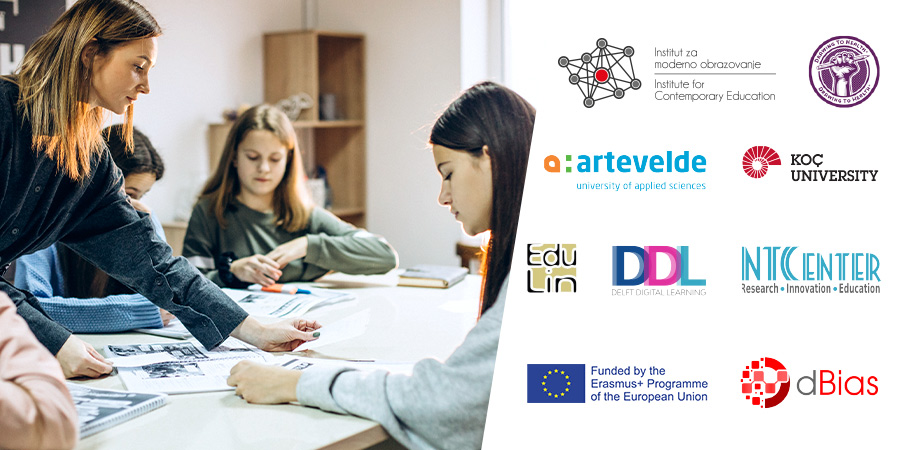
THE FIRST NEWSLETTER IN SERBIAN: ICE and an international project team present the dBias project newsletter
Together with partners from Great Britain, Bulgaria, Belgium, the Netherlands, Portugal and Turkey, the Institute for Contemporary Education (ICE) got the opportunity to implement a three-year Erasmus+ project designed to yield the first and only practical IT tools, strategies and functional methodology for identifying and managing cognitive biases.
During the “The Art of De-biasing” project, teams comprising top education experts, psychologists, and educationalists from partnering countries will create an innovative and unique curriculum, and a functional didactic and methodical technology for the professional development of teachers.
We present the first dBias newsletter
The first activities in the international dBias educational project took place via Zoom. Although this mode of operating was challenging for all participants, all the activities were carried out according to plan.
The activities included the following:
- grouping cognitive biases
- selecting learning-related cognitive biases
Based on the listed criteria, the participants selected 93 cognitive biases. The next stage involved selecting the criteria for achieving the end goal of the project – choosing 30 cognitive biases. The criteria are used to identify biases that are:
- suitable for video,
- responsive to de-biasing,
- measurable,
- frequently observed,
- scientifically established and representative.
Click and take a look at the first dBias newsletter.
ICE conducted a survey about real-life cognitive biases
ICE contributed to the project with 30 real-life examples of cognitive biases. To make sure that these examples are relevant to teaching, training, and learning practice, ICE organized a validation survey of the selected examples by experts, educators and learners.
Bash Art Creative, the project coordinator from Great Britain, gave all partners an inspiring online video training with tips and tricks for creating these videos and of course a roadmap to create scenarios from the validated examples.
Would you like to know whether you’re biased, too?
If you’re interested in cognitive biases and would like to know how biased you are, we invite you to do Harvard University’s online tests and find out in a fun way.
You can learn more about biases on the project’s social media (Facebook, LinkedIn). If you would like to keep up with the latest news from the Institute for Contemporary Education, join our Viber community.
For more information, send us an email at office@institut.edu.rs and edu@institut.edu.rs or call us at 011/40-11-260.


 Srpski
Srpski




